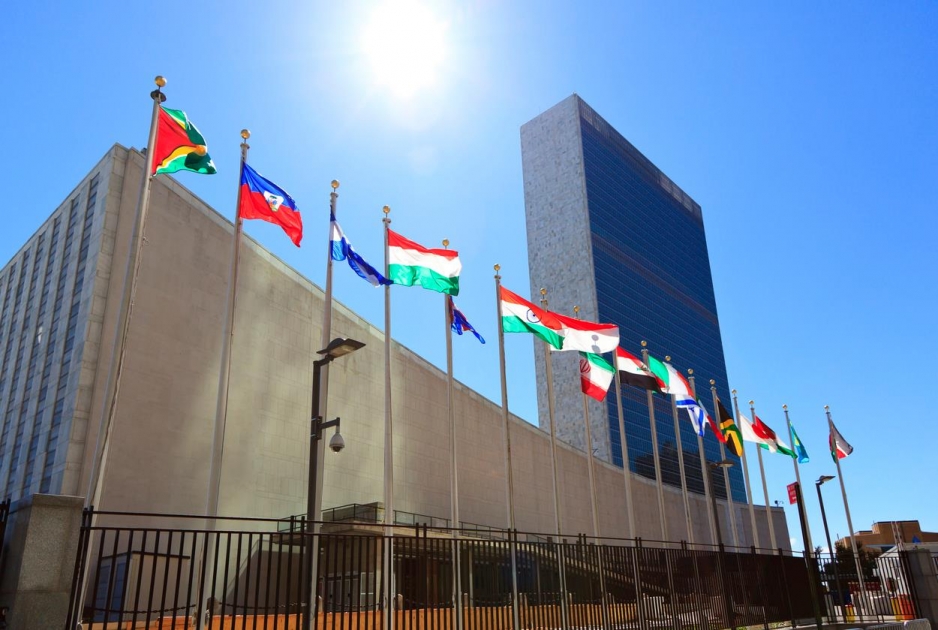Remarks to the Press by Permanent Representative Vassily Nebenzia following the UN Security Council procedural vote to hold a meeting on Ukraine
Q.: Are you satisfied with the outcomes of this meeting?
A.: Today we have seen double and triple standards in discussing issues that some Security Council Members wish to bring to the attention of other Security Council Members. Last time our colleagues asked to call a meeting after the Russian President’s decree on citizenship for Donbass population was adopted. We called it, we did not object. We said that it had no relation to the Minsk Agreements but we still were prepared to discuss it anytime. We stated it clearly on many occasions.
This time when we raised an issue directly related to the Minsk Agreements some of them said that it was not relevant, some of them said that they would need more time to consider it and that the time was not appropriate. Some of them said that it could compromise the inauguration of the Ukrainian President. In what way? We do not understand. The incoming President demonstrates a much more reasonable approach to the language issue, which was dividing Ukraine during the previous President’s tenure. He wants to unite Ukraine, and that is what we also want.
We want to send a signal that in order to unite the Ukrainian society one should not adopt draconian language laws. Every nation has the right to defend the language of its title population. No problem with that. But demarches – that is the question. In Ukraine the population is mostly Russian-speaking. They cannot be deprived of right to speak the language of their choice. In what country in the world can you see this?
Q.: Why were you opposed to postpone the meeting? Why did you choose this date?
A.: There was no link to the inauguration. The law came in force on 15th of May. This was the last souvenir that former President Poroshenko left to the newcomer. We could not call a meeting on 16th or 17th of May because of the holidays, so we asked for the 20th. At that time, the date of inauguration was not even set. So we have never linked the meeting to the inauguration.
Q.: Quick question on the ongoing tensions between Iran and the U.S. The President of the United States, one of the nuclear powers, wrote in his Twitter that Iran might not exist in the future.
A.: I did not come across this statement. I prefer not to comment on this.
Q.: Do you think the Security Council should be discussing these tensions?
A.: Of course, the situation is very worrisome. We do not know where we will end up with that. The rhetoric is bellicose, especially on this side of the Atlantic Ocean. So maybe there is a point in discussing the issue as an evolving threat to international peace and security.
Q.: If a small incident happens, there are no direct lines of communication between Iran and U.S.?
A.: That is the issue. It could happen and may not be prevented through regular channels.
Q.: Can Russia be a mediator?
A.: The main intermediary is the UN Security Council. If something like that evolved, of course, that would be an issue for the Security Council. But we pray for not coming to this. Even Mr. Trump said that it was not his choice and option. We see other views that unfortunately fit in another scenario.
Q.: Could Russia be a channel of communication between the two countries in case of crisis?
A.: In the modern world, you can communicate directly. There are many means of communication. We were never asked to be such a mediator, but if we are, we will never refuse, we will never walk away from it.
Q.: The Iranian Ambassador has sent a letter to the President of the SC and to the SG. There was a resolution in 1980s that could be used now as a forum for negotiations involving Gulf countries and Iran. Do you see that it could be a way forward?
A.: We stress this issue every time when we discuss the Middle East. Beside resolution 598, there is also our initiative to convene the Persian Gulf Security Architecture Forum which would eventually evolve into a larger format. But now it is in vain. However, we need a venue or a dialogue format where we would be able to discuss the regional issues. Moreover, I believe that the UK, along with many other countries, shares this view.
Q.: Quick question on North Korea. They want their ships back from the U.S. Do you think it is something that the UNSC should be involved in?
A.: We do not operate ships. But I think that property that belongs to another coastal country should be returned where it belongs.
Q.: The Belgian Ambassador said that they had asked that the meeting today be held on a later date. Are you planning to come back and try holding this meeting on a later date?
A.: The Belgian Ambassador is not the only one who alluded to it. German and French Ambassadors were speaking on the same thing. In one of my further statements I said that we welcome this idea and we would come back at a proper time.
